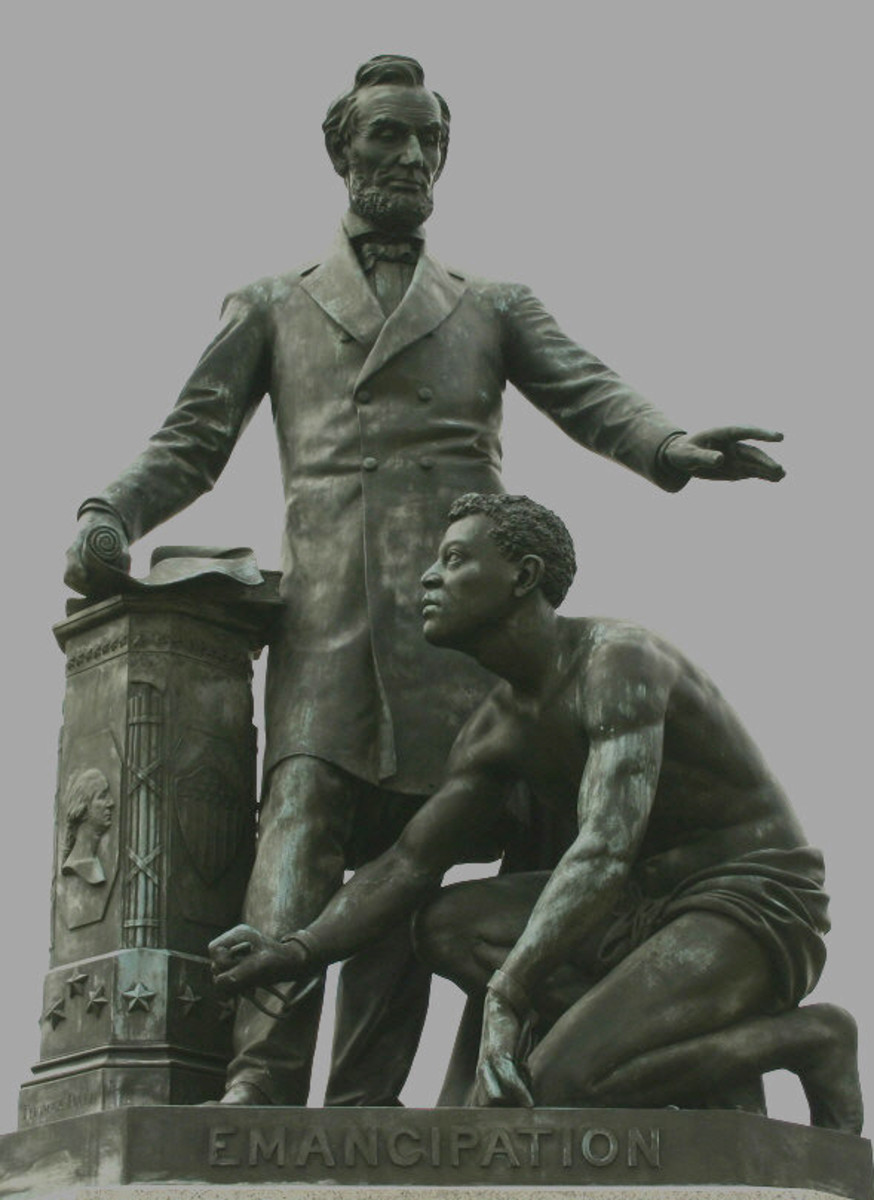Wage Labour Wage Slavery
Wage slavery, described in the 18th century and probably first named in the 19th century is a negative term highlighting the similarity between slavery and wage labour and between owning and employing a person. A wage slave is legally free but must undertake wage labour and cannot exercise their right to leave their employment. Wikipedia describes it less starkly as a situation where someone's livelihood depends on wages and that need is total and immediate. Under the Wikipedia definition almost any employee is a wage slave, since few manage to build up enough resources to be independent of some form of wage, even for just a few months, few manage to set up successful businesses and to be suspected of looking for another employment may result in immediate dismissal. Describing all wage workers as wage slaves may be excessive but the boundary separating the free wage worker the wage slave and the owned slave is often unclear and includes more people than most imagine: defenders of wage labour describe employment as a contract between two people into which each freely enters, ignoring the disparity in power between the parties. Even when the employer needs the worker as much as the worker needs the money, the employer can almost always wait a lot longer, and time is power in this case.
Early wage contracts and Slavery
Historically, the first known wage labor contracts – whether in ancient Greece or Rome, or in the Malay or Swahili city states in the Indian ocean – were contracts for the rental of chattel slaves (usually the owner received a share of the money, and the slave, another, with which to maintain his or her living expenses.) Such arrangements, were apparently quite common in New World slavery as well, whether in the United States or Brazil, and some have argued that most of the techniques of human organisation employed on factory workers during the industrial revolution were first developed on slave plantations. In fact it seems to me that employment law in its entirety attempts to reinstate slavery in an environment where it is illegal.
Ewan McColl's song The Manchester Rambler describes what most people feel about their employment
I'm a rambler, I'm a rambler from Manchester way
I get all my pleasure the hard moorland way
I may be a wage slave on Monday
But I am a free man on Sunday
Wage Slavery in the past
The idea that working for a wage was close to slavery was known in the ancient world [2] where Cicero wrote
whoever gives his labor for money sells himself and puts himself in the rank of slaves.
In the 18th Century Simon Linguet first described Wage Slavery [2]
The slave was precious to his master because of the money he had cost him… They were worth at least as much as they could be sold for in the market… It is the impossibility of living by any other means that compels our farm labourers to till the soil whose fruits they will not eat and our masons to construct buildings in which they will not live… It is want that compels them to go down on their knees to the rich man in order to get from him permission to enrich him… what effective gain [has] the suppression of slavery brought [him?] He is free, you say. Ah! That is his misfortune… These men… [have] the most terrible, the most imperious of masters, that is, need. … They must therefore find someone to hire them, or die of hunger. Is that to be free?
Early in the 19th century the cotton workers of Lowell Massachusetts however may have been the first to use the term.
It is natural for some people to take advantage of others as soon as they are in a dominant position, and in the course of the Industrial revolution many did so. The UK the Industrial Revolution of the 18th century involved movement of people from country to city and the replacement of a largely freelance workforce with a paid workforce chained to factories for something like 80 hours a week. Factory owners who “only” required 60 hours, as did Robert Own in New Lanark, were considered radical.
Which was worse, Slavery or wage labour?
The 19th century defenders of slavery, mainly in the American South claimed that wage labour was very similar to chattel-slavery, and that their slaves were better off than the nominally free labourers in the North. Critics of Capitalism- also opponents of slavery – also stressed the similarities between Slavery and wage labour. This contention has been partly corroborated by some modern studies that indicate slaves' material conditions in the 19th century were "better than what was typically available to free urban labourers at the time” and Russell in A Renegade History of the United States notes that a large proportion of ex-slaves considered they were better off as slaves than under freedom, had to work much harder and lost a lot of freedoms, especially sexual freedom. This “golden” period was probably the period between the abolition of the slave trade and the abolition of slavery, when the slave became a less disposable commodity.
The argument that free labourers could become self employed, and thus truly free, proposed by abolitionists became weaker as artisans, the “Aristocrats of labour” slowly disappeared, in the US and UK, at the end of the 19th century. At the same time some companies enslaved their workers by paying them in tokens redeemable only at company stores, where the prices were so high the worker built up more and more debt-bondage just to survive, as Tennessee Ernie Ford described in his song Sixteen Tons.
You load sixteen tons, what do you get
Another day older and deeper in debt
Saint Peter don't you call me 'cause I can't go
I owe my soul to the company store
The line "I owe my soul to the company store" refers to the truck systemand debt bondage. Under thissystem, workers were not paid cash; they were paid with non-transferable credit vouchers exchangeable only for expensive goods sold at the company store, which made it impossible for workers to store up cash savings, and often unable legally to leave the job. Workers usually lived in company-owned dormitories or houses, with rent automatically deducted from their pay. In the United States the truck system and associated debt bondage persisted until industrial actionforced an end to such practices [3], though some companies seem keen on reviving it and paying not with vouchers but with promises of the chance of paid temporary work [6].
In 1869 The New York Times described the system of wage labor as "a system of slavery as absolute if not as degrading as that which lately prevailed at the South”, and Historian E. P. Thompsonnoted that for British workers at the end of the 18th and beginning of the 19th centuries, the "gap in status between a 'servant,' a hired wage-labourer subject to the orders and discipline of the master, and an artisan, who might 'come and go' as he pleased, was wide enough for men to shed blood rather than allow themselves to be pushed from one side to the other.
Wage slavery euphemised
The structural changes associated with the later stages of industrial capitalism, included increased centralisation of production, declining wages, an expanding labor pool, intensifying competition, and a loss of competence and independence experienced by skilled labour. This made a critique that referred to all [wage] work as slavery and avoided demands for wage concessions in favour of, for example, diverting strike funds towards funding co-operatives, for example, less compelling than one that identified the specific conditions of slavery as low wages. Thus, "wage slavery" was gradually replaced by the more pragmatic term "wage work" (use of which benefited the employers of course) towards the end of the 19th century.
Wage Slavery today
Today a few specialists such as electricians, builders and painters, survive as independent traders (artisans), despite hostility from state and government, particularly in the UK, totally at variance with public statements from policy makers. This is understandable because wage labour is easier to tax, which makes civil servants happy, allows a greater measure of social control and, especially if wages are low relative to the cost of living, leaves almost all the population lacking time to both have a life and interfere... sorry, participate, in the democratic process.
In the UK the use of contract ( non wage ) labour, is under attack from right and left. The Blair government passed an apparently arcane piece of legislation, known as IR35, nominally intended to tackle the abuse that arises when an employer persuades a worker to resign on a Friday and come back on a Monday as an external contractor. In practice this abuse was rare and the legislation has been used and abused in an attempt to redefine all one man companies as disguised employees with, for example, the mere politeness of asking a client when it would be convenient for the contractor to take holidays, taken as a sign that the client was an employer with full control over the contractor. This was obviously intended to force the self employed into regular employment rather than tackle abuses since it cost more to collect than has been recovered, and the coalition government that replaced New “labour” has essentially left the legislation unchanged.
Wage Slavery is perpetuated in the UK by corporate importing of cheap labour from third world countries. One correspondent on the shout99 website, himself Indian, noted that Indian workers were flown in and paid £35 for a twelve hour day (Four hours unpaid overtime) and comply with employer demands for fear of being flown back if they complained. The New Labour Government was complicit in this exploitation claiming it was needed to make the UK competitive. More recently the UK government has proposed prison factories to allow prisoners to work to support their families outside. The Prisons minister say the implementation should be handled carefully in order “to avoid it looking as if 'legitimate' jobs were being stolen”, the key words being “looking” and “legitimate”. Also the justice secretary said ‘There’s no reason why they shouldn’t help pay for themselves and the cost of the prison.’. This leads to the spectre of a prisoner being told “Your sentence is over but you have not earned enough to pay for the cost of keeping you here so you have to stay longer”.
Of course at the top the situation is different. I recall working for one company where the directors contract simply said that if they were not seen on company premises for three months they would be considered as no longer working for the company.
Wage slavery and the recession
Wage slaves are usually on low wages. This means they have to go into debt. When this is no longer possible or they are required to pay down the debt the resulting lack of spending leads to recession, for example in the Great Depression and in the Bank initiated recession of 2008. This, together with inflation caused when wages rise, leads to cyclic fluctuations known as the business cycle. One reason given for the recession was people taking out mortgages they could not afford , but the possibility people on wages kept low to “make the country competitive” and unable to change to a better paying job, took out loans to cover unexpected emergencies has not been mentioned or even examined. It is so much easier to blame the victim than to look at the causes
In brief
The similarities between wage labour and slavery have been known for millennia. Unfortunately wage slavery is still in existence today. A combination of cultural and economic factors, together with employer dominated government policies have made it harder and harder for non-wage workers ( the self employed) to operate. The move to wage labour makes social control easier for Government and benefits the rich at the expense of the poor.
Further Reading
[2] Wikipedia on Wage Slavery.
[3] Sixteen Tons
[5] Prisons and their contracts: This url has vanished from the web







